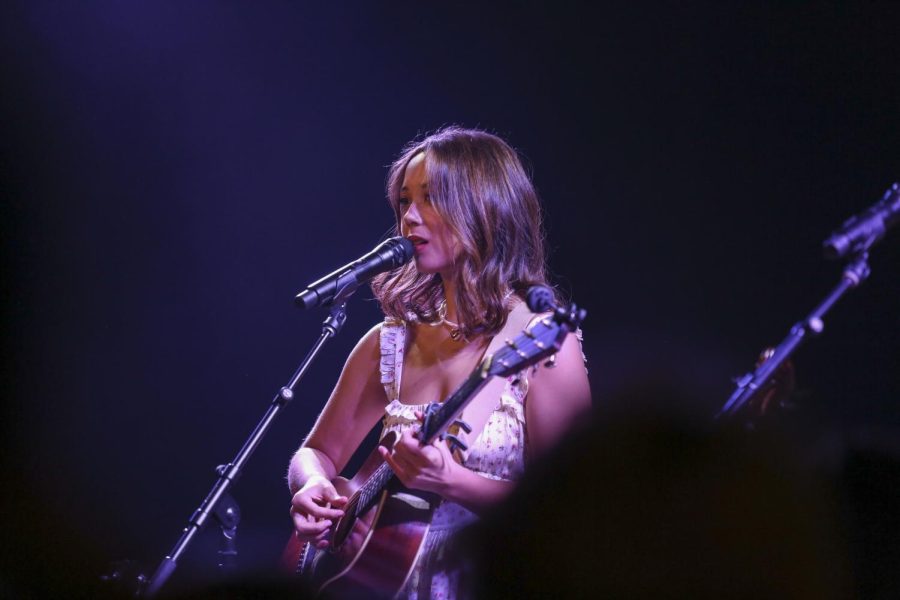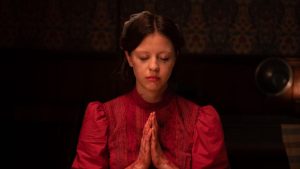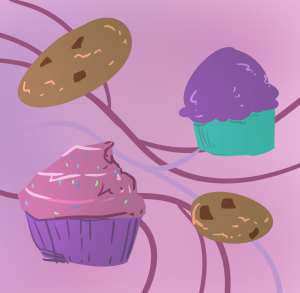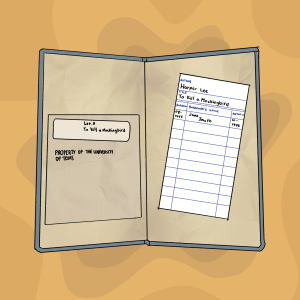Laufey shares how classical, jazz music meld in debut album Everything I Know About Love
September 19, 2022
Artist and multi-instrumentalist Laufey envelops her songs with experiences from all the realms of her life, breathing life into timeless genres. Growing up surrounded by musicians, the romantic singer-songwriter embraces the genre bending of her tight-knit Icelandic music communities and classical styles from her Chinese background.
Ahead of her sold-out show in Austin, The Daily Texan spoke with Laufey about her fondness for classical and jazz music, which shines through in her debut album Everything I Know About Love.
The Daily Texan: Everything I Know About Love is dedicated to “old souls” and “fellow romantics.” How did you use classical and jazz music to express your worldview?
Laufey: Classical and jazz music are the most romantic genres of music. It’s music that often illustrates romantic movie scenes, and we associate it with a certain dreaminess because it’s been around for so long. You don’t necessarily associate it with a certain time or decade. It’s more associated with a certain feeling.
DT: What messages were you trying to get across in your album?
L: Musically, my message was that classical (and) jazz music can exist within this decade. … Lyrically, I wanted to illustrate the complex messiness of the beginning stages of adulthood and everything that follows that … It’s like a post-college world (where) it’s normal to be confused all the time, and you have the highest highs and lowest lows.
DT: In a previous interview, you said that people tend to have this “academic approach” to classical music because of its technicality. How are you breaking down that preconception and making these genres more digestible?
L: A lot of young people are scared to approach these genres, because it’s been made to look like something so scary, but if you don’t open it up towards new audiences and listeners who don’t have the same background in the industry as me, it’s going to quickly die out … The way I’m trying to do it is via social media … (putting) classical and jazz music on TikTok is one of the quickest ways to get (this music out there).
DT: Title-wise, “Above the Chinese Restaurant” stands out and makes listeners feel like they’re flying. What’s the story behind this song?
L: I’m half Chinese, and I grew up in a very Chinese household speaking Chinese and eating a lot of dumplings … I thought “Above the Chinese Restaurant” was a cool title. I was walking through Chinatown and saw an apartment above (a restaurant). That’s the one song on my album that isn’t a direct story from my life, but the message is very much from my life. You don’t really know what you have until you don’t have it … I tried to write in a way that every song shows the setting and what’s happening, who’s there, what you’re eating — everything.
DT: Your album ends with “Night Light,” which is your way of expressing that reluctant-but-inevitable transition into adulthood. What childhood lessons do you still carry with you in your 20s?
L: My father told me an Icelandic (proverb that) basically (says that) everything will unfold the way that it’s supposed to. Everything figures itself out, and I always tell myself to remember that.
DT: Is there a specific reason why you put this song last in an album centered around love?
L: Absolutely. This album marks my entry into adulthood. When I was writing all these songs and recording the album, I graduated college, moved out of my childhood home and grew this career in life that I never expected. I grew up quickly (in) a small amount of time … I thought having the last words, “Keeping on the night light,” is a reminder that wherever I go, I’ll still have that little childhood spark in me.















